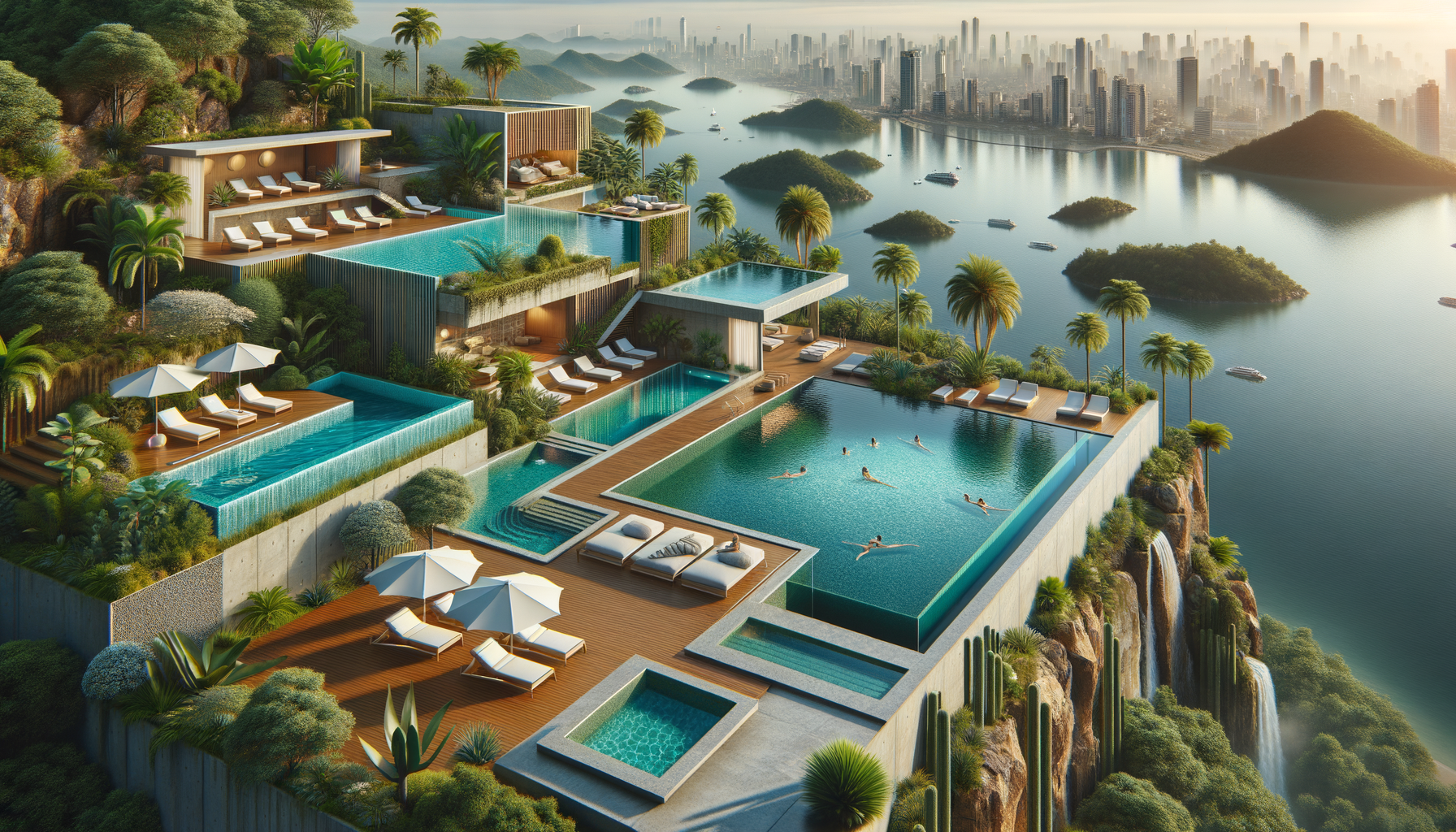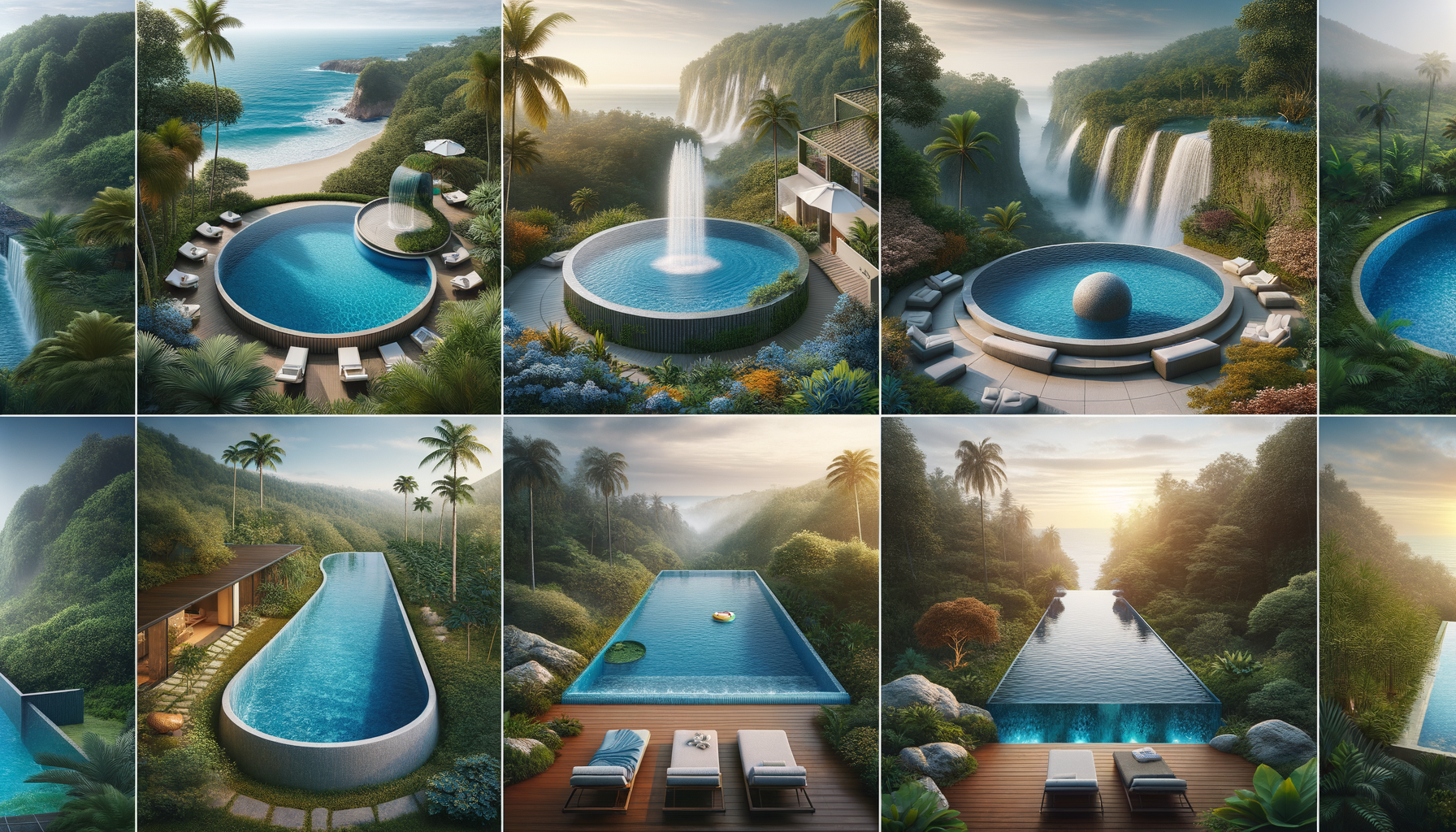The Appeal of Outdoor Pools
Outdoor pools have long been a symbol of luxury and leisure, transforming ordinary backyards into private retreats. The allure of having a personal swimming area extends beyond mere aesthetics; it offers a sanctuary for relaxation, exercise, and social gatherings. The soothing sound of water and the refreshing dip on a hot day can significantly enhance one’s quality of life.
One of the primary benefits of outdoor pools is their ability to provide a convenient space for physical activity. Swimming is an excellent form of exercise that engages multiple muscle groups, improves cardiovascular health, and enhances flexibility. Unlike indoor pools, outdoor versions allow swimmers to enjoy the natural surroundings and fresh air, creating a more invigorating experience.
Moreover, outdoor pools serve as a hub for social interaction. They are perfect for hosting parties, family gatherings, or casual get-togethers with friends. The poolside atmosphere encourages relaxation and conversation, making it an ideal setting for creating lasting memories. Additionally, a well-designed pool can significantly increase the value of a property, making it an attractive investment for homeowners.
Types of Outdoor Pools
When considering the installation of an outdoor pool, it’s essential to understand the different types available. Each type has its unique features, benefits, and considerations, making it important to choose one that aligns with your needs and lifestyle.
In-ground pools are among the most popular choices for outdoor swimming areas. They offer a permanent and customizable solution, allowing homeowners to choose from a variety of shapes, sizes, and materials. Options such as concrete, fiberglass, and vinyl-lined pools each come with their own set of advantages. For instance, concrete pools are known for their durability and flexibility in design, while fiberglass pools offer a smooth surface and quick installation.
Above-ground pools are another option, offering a more affordable and temporary solution. These pools are usually easier to install and maintain, making them a practical choice for families who want a swimming area without the commitment of an in-ground pool. They can also be dismantled and moved if necessary, providing flexibility for homeowners.
Natural pools are an eco-friendly alternative that has gained popularity in recent years. These pools use natural filtration systems and plants to keep the water clean, creating a harmonious blend with the surrounding environment. They offer a unique swimming experience, allowing users to enjoy the benefits of a pool without the need for harsh chemicals.
Design Considerations for Outdoor Pools
The design of an outdoor pool plays a crucial role in its functionality and aesthetic appeal. When planning a pool, several factors must be considered to ensure it meets your needs and enhances your outdoor space.
First, consider the size and shape of the pool. These should complement the layout of your backyard and accommodate the intended use of the pool. For instance, a rectangular pool may be suitable for lap swimming, while a freeform design might better suit a space intended for relaxation and leisure.
Next, think about the materials and finishes. The choice of materials can affect the pool’s durability, maintenance requirements, and overall look. Popular options include tile, stone, and aggregate finishes, each offering distinct textures and colors to match your style.
Incorporating features such as waterfalls, lighting, and landscaping can enhance the ambiance of your pool area. Water features add a sense of tranquility, while lighting can extend the usability of the pool into the evening hours. Thoughtful landscaping can provide privacy and create a cohesive outdoor environment.
Finally, safety should be a top priority in pool design. Installing barriers, covers, and alarms can help prevent accidents, particularly if children or pets have access to the area. Consulting with a professional can help ensure that your pool meets all safety regulations and requirements.
Maintenance and Care of Outdoor Pools
Proper maintenance is essential to keep an outdoor pool in optimal condition and ensure it remains a safe and enjoyable space. Regular care can extend the lifespan of the pool and reduce the need for costly repairs.
One of the primary tasks in pool maintenance is keeping the water clean and balanced. This involves regular testing and adjusting of chemical levels to prevent the growth of algae and bacteria. Chlorine is commonly used to disinfect the water, but alternative methods such as saltwater systems are also available.
Cleaning the pool surface and surrounding area is another important aspect of maintenance. This includes skimming debris, vacuuming the pool floor, and brushing the walls to prevent buildup. Regular cleaning helps maintain the pool’s appearance and prevents damage to the materials.
Checking and maintaining the pool equipment is crucial for its functionality. This includes inspecting the pump, filter, and heating systems to ensure they are working efficiently. Regular servicing by a professional can help identify potential issues before they become major problems.
Finally, seasonal maintenance tasks such as winterizing the pool or preparing it for summer use are necessary to protect it from weather-related damage. Covering the pool and draining the plumbing system can prevent freezing and cracking during colder months.
Choosing the Right Outdoor Pool for Your Home
Selecting the right outdoor pool involves careful consideration of various factors to ensure it aligns with your lifestyle and enhances your property. Here are some key points to keep in mind when making your decision:
First, assess your budget and determine how much you are willing to invest in a pool. This will help narrow down your options and guide you towards choices that are financially feasible. Keep in mind that the initial cost is just one aspect; ongoing maintenance and potential upgrades should also be considered.
Consider the space available in your backyard and how the pool will fit into the existing landscape. Take into account any zoning regulations or restrictions that may affect the installation process. A professional can help assess the site and provide recommendations based on its characteristics.
Think about the primary use of the pool. Whether you intend to use it for exercise, relaxation, or entertaining, this will influence the design and features you choose. For example, a lap pool may be ideal for fitness enthusiasts, while a larger pool with a shallow end may be better suited for families with children.
Finally, consider the climate and weather conditions in your area. This can impact the type of pool that is most suitable, as well as the maintenance requirements. In warmer climates, a pool may be used year-round, while in colder regions, it may require seasonal closures.
By taking these factors into account, you can make an informed decision that results in a pool that enhances your home and provides years of enjoyment.



Leave a Reply